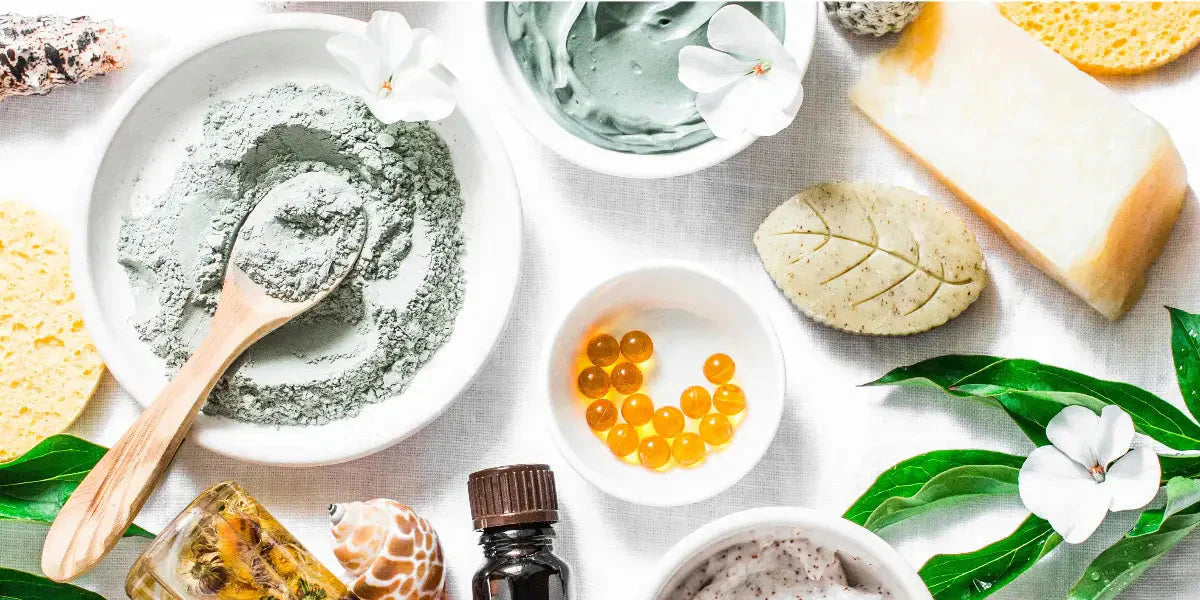
The benefits of plants in herbal medicine for acne
|
|
|
Time to read 3 min
|
|
|
Time to read 3 min
Before choosing an herb to treat acne, it is important to understand the origin of the problem. Indeed, acne is often a symptom of an internal imbalance. This can be due to hormonal disruption, digestive problems, stress, exposure to allergens or even the use of harsh cosmetics. It is therefore essential to identify the root cause of acne before starting any herbal treatment.
Herbal medicine can provide many benefits in the treatment of acne. Plants used in herbal medicine can work in different ways to reduce inflammation and promote healing of the skin. Here are some of the most commonly used herbs in herbal medicine for acne:
Nettle is a plant with anti-inflammatory and depurative properties. It helps eliminate toxins from the body and reduces inflammation of the skin. You can use nettle as an infusion or decoction to benefit from its benefits.
Burdock is a plant known for its depurative and purifying properties. It helps remove toxins from the skin, thereby reducing acne problems. Burdock can be used as an infusion or decoction to treat acne.
Wild pansy is a plant that has anti-inflammatory and healing properties. It helps reduce inflammation of the skin and promotes healing of lesions caused by acne. You can use wild pansy as an infusion to benefit from its benefits.
Witch hazel is a plant known for its astringent and anti-inflammatory properties. It helps tighten skin pores, thereby reducing excessive sebum production and preventing the appearance of new acne lesions. Witch hazel can be used as a lotion or decoction to treat acne.
Tea tree essential oil is known for its antibacterial and antiseptic properties. It helps eliminate acne-causing bacteria and reduce skin inflammation. You can dilute a few drops of tea tree essential oil in a carrier oil and apply it topically to acne lesions.
Discover our Skin Balance complex to fight against imperfections
When using plants in herbal medicine to treat acne, it is important to follow certain precautions. Here are some tips for using plants optimally:
Consult a healthcare professional : Before starting any herbal treatment, it is recommended to consult a naturopath or doctor to ensure that herbal medicine is suitable for your situation and does not interact with other medications. you could take.
Choose the right form of plant: Plants used in herbal medicine can be available in different forms, such as capsules, mother tinctures, infusions, decoctions, etc. Choose the shape that best suits your needs and preference.
Follow the recommended dosages : Each herb has its own recommended dosages. Follow the directions provided by your naturopath or carefully read the instructions on the packaging of the product you are using.
Take a gradual approach : Start with a course of 3 weeks to 1 month to assess the effects of the plants on your skin and your acne. If the results are not satisfactory, you can extend the treatment for 2 months, but remember to take a 10-day break after this period to prevent your body from getting too used to the plants.
Opt for plant synergies : Depending on your situation and your acne problem, it may be wise to use several plants in synergy to maximize the benefits. Ask a healthcare professional for advice to find the combination best suited to your situation.
Herbal medicine can be a natural and effective approach to treating acne. Herbs used in herbal medicine, such as nettle, burdock, wild pansy, witch hazel and tea tree essential oil, have anti-inflammatory, healing and purifying properties that can help reduce the inflammation of the skin and promote healing of acne lesions. However, it is important to consult a healthcare professional before starting herbal treatment and to follow the recommended dosages. With a gradual approach and adopting good practices, herbal medicine can help you regain healthier skin and reduce acne problems.